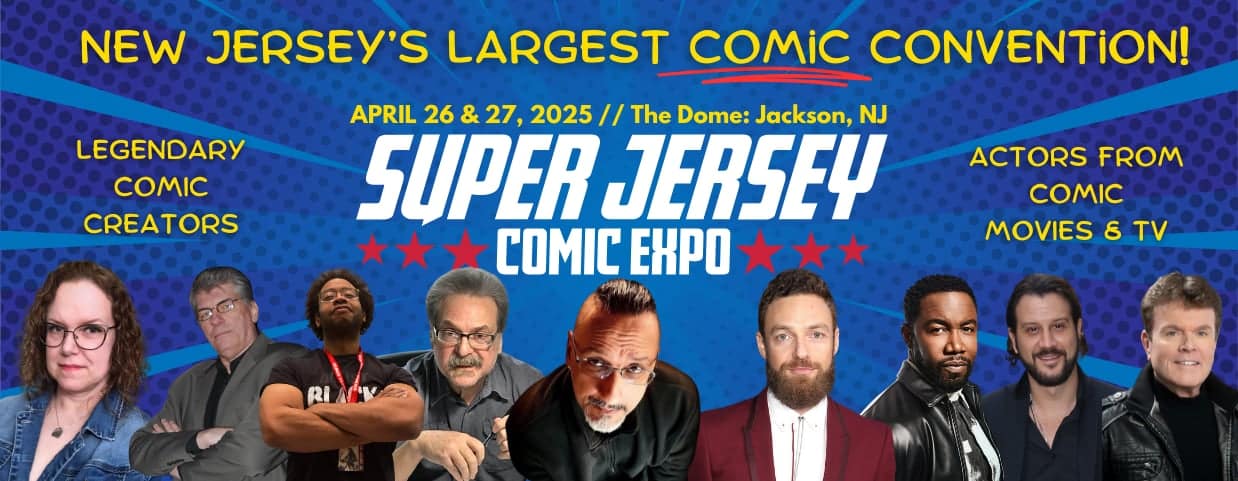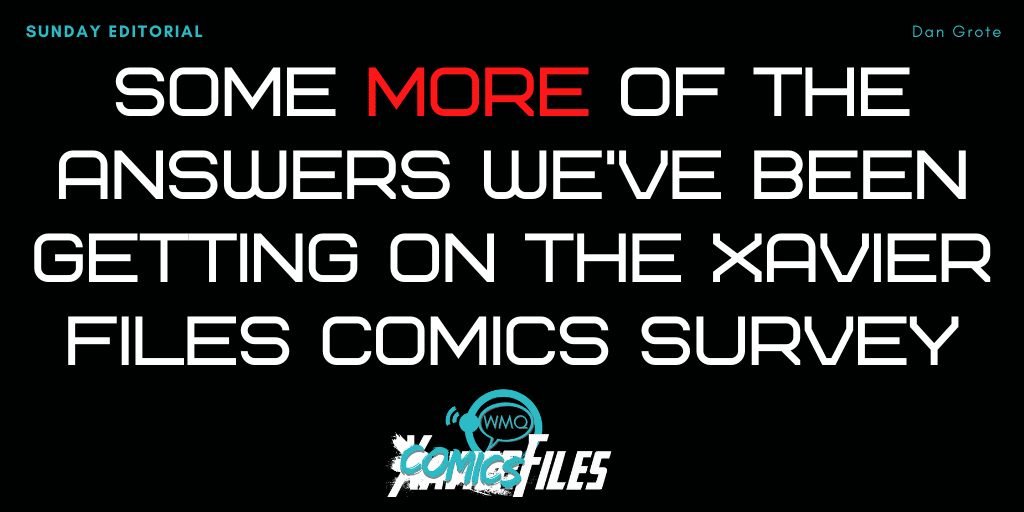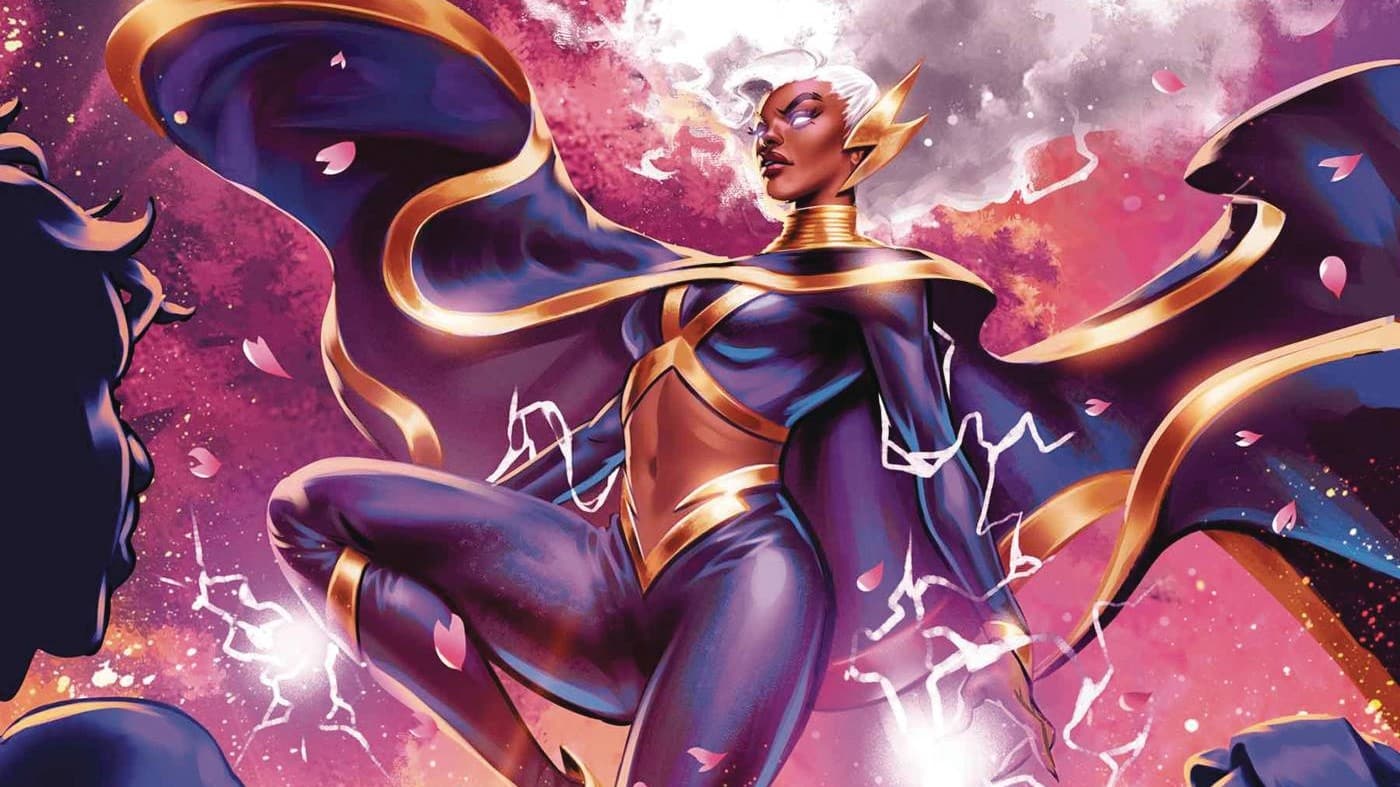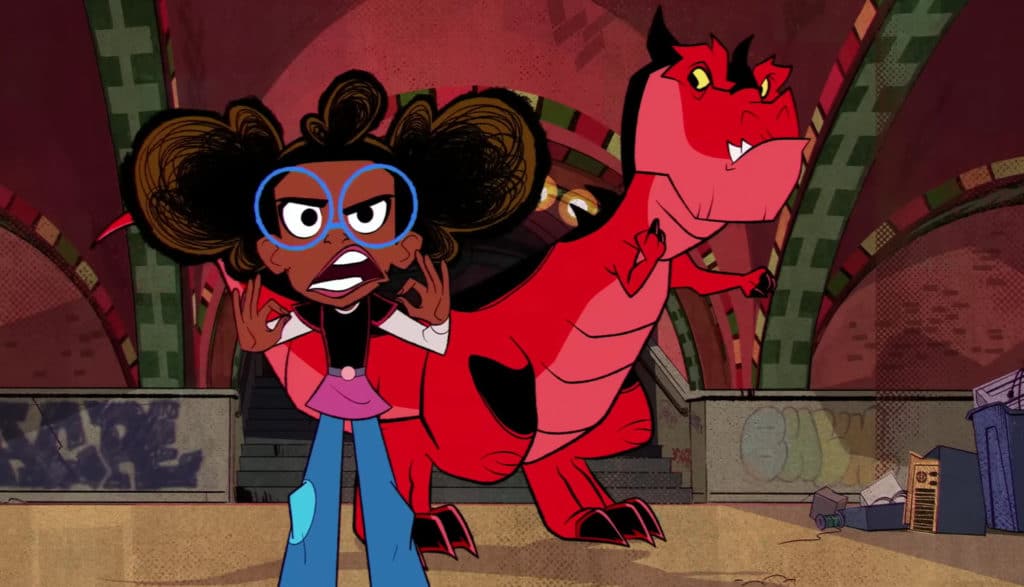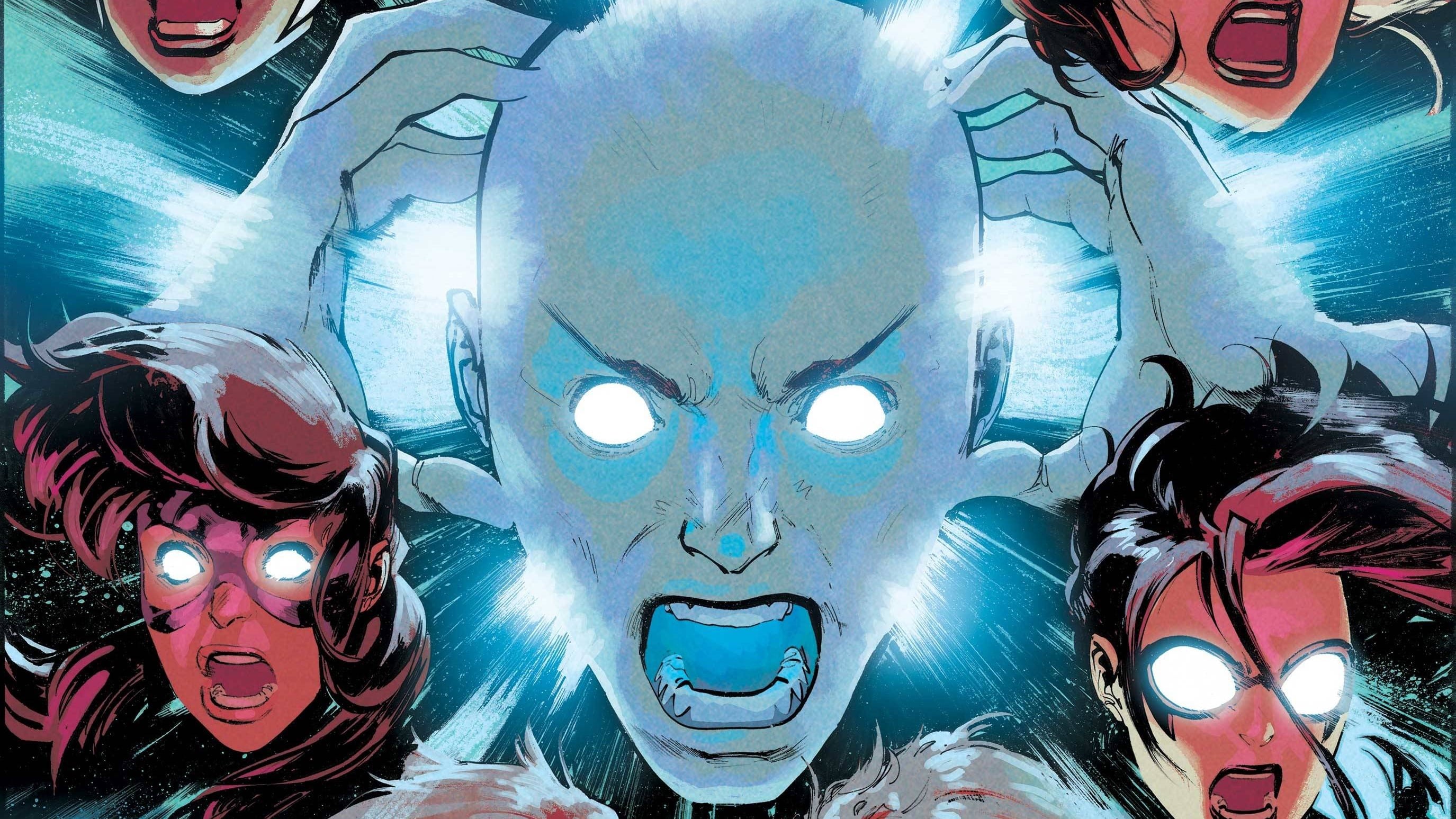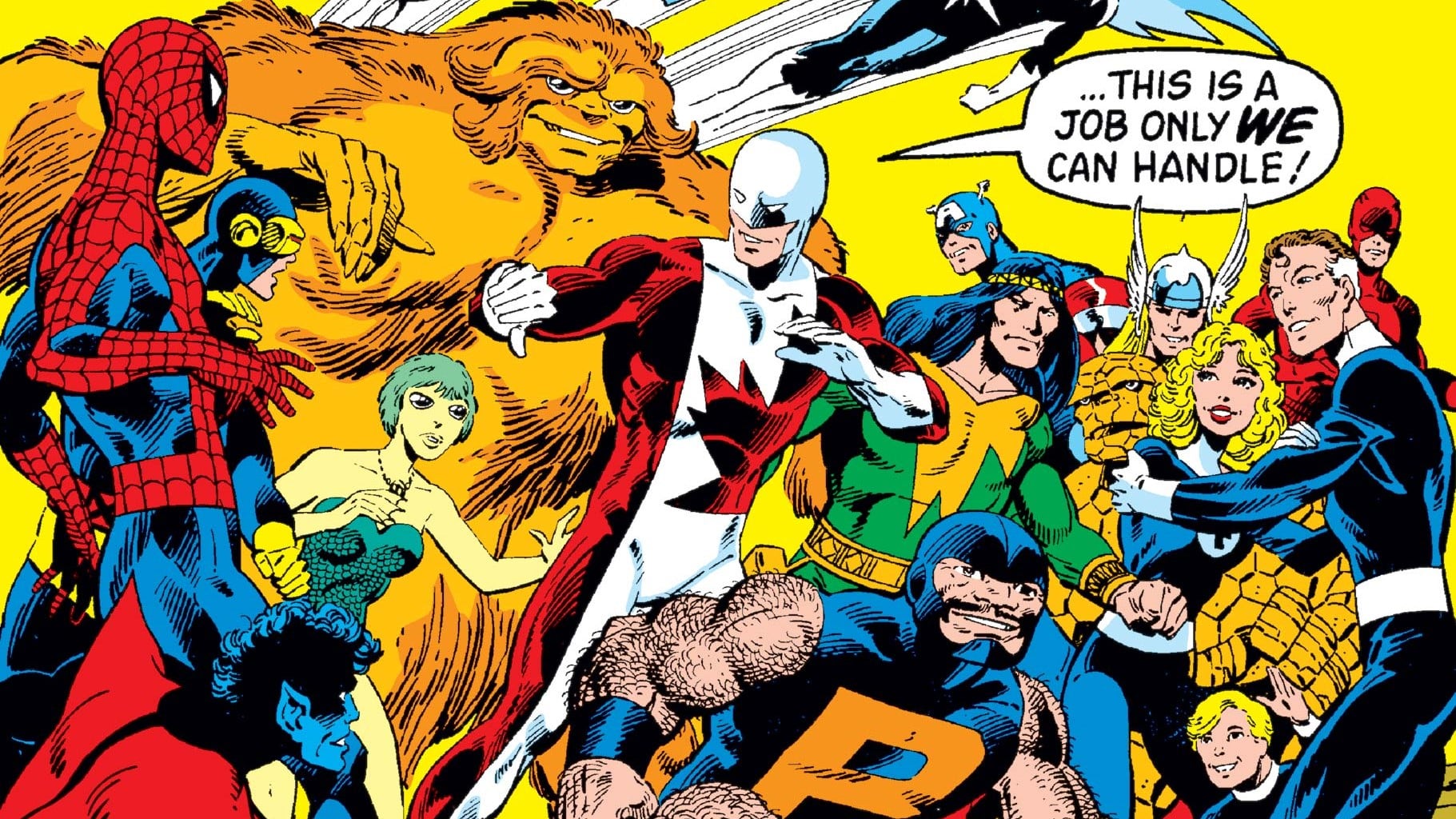A few weeks ago, we asked writers, artists, readers, retailers, journalists – pretty much anyone who loves comics – to answer one question:
With everything that’s happened this year, what is one thing the comics industry needs to do to evolve and thrive in 2021?
As we’ve gotten in dozens of responses, the industry has continued to do the former, if not the latter.
Hot off announcing its good-buzz-generating Future State event, DC told retailers it was parting ways with UCS, one of the two distributors it partnered with as it ended its relationship with Diamond Comic Distributors in the spring. Starting in January, it will distribute monthly comics exclusively through Lunar.
Meanwhile, on the digital front, Marvel hopped the pandemic-pause turnstile and announced it would make titles available on its Marvel Unlimited subscription platform three months after they hit comic shops, compared with the previous six. This follows Archie’s and Kodansha’s recent moves to day-and-date availability on comiXology Unlimited, the Amazon subsidiary’s subscription-reading platform.
Mean-meanwhile, Kickstarter continues to fill up with notable projects like Liana Kangas and Scott Bryan Wilson’s burgers-and-Beelzebubs comic TRVE KVLT, Marco Rudy’s high-fantasy addiction tale RDW, and Aubrey Sitterson and Tyrell Cannon’s leftist, bodybuilding Saturday morning cartoon comic BEEF BROS. Kickstarter recently announced that comics had a record year on the crowdfunding platform, receiving $22 million in pledges. The top performer was the collected editions of Keanu Reeves’ BRZRKR, which ended up making a record $1.45 million.
Then there’s that dark cloud of uncertainty looming just over the horizon. As coronavirus cases rise again, is the U.S. headed toward another period of stay-at-home orders that will force comic shops to close and disrupt the supply chain? Can comic shops – or any number of other small businesses, really – survive another round? Did we learn enough from the first round that the industry would be able to adjust and keep content flowing while keeping the people who make and sell it safe?
That’s probably a bit more fear-mongering and speculation than is healthy, so let’s get back to the question at hand. Here are some more answers submitted by Xavier Files readers, staffers, creators and others:
(Some responses have been edited for length.)
Continue its divorce from Diamond distributing. WAY past time to evolve from the Direct Market model of doing business.
Keith Dallas, co-author, Comic Book Implosion: An Oral History of DC Comics Circa 1978, @Keith_Dallas on Twitter
Comics needs to find new formats, business models and readers. The good news is the models for those already exist in the larger publishing industry, particularly YA.
Paul Constant, writer, AHOY Comics’ Planet of the Nerds, paulconstant.com
Get out of its bubble. Explore more cross-discipline/cross-platform opportunities to help expand the market and thrive. The bubble metaphor also extends to the recursive loop that is the cycling and recycling of old IPs. Find a way to make it financially feasible to grow and sustain new IP by looking into new/emerging markets. The YA readership should be instructive in this area.
Andrea Ayres, Xavier Files staff writer, andreaayres.work
We can debate how to appeal to younger readers better (Hint: It’s the Scholastic book market) or floppies vs. TPBs (I am in favor of limited series being TPB only, for the record), but the ONE thing that needs to change is the direct market system. LCS’s should be able to return excess product. Pre-orders should be for reserving guaranteed stock, not determining a title’s success before the first issue is released. Other distributors should be used, other than Diamond. If the DM gets fixed, I think most of the industry’s other problems will be easier to address.
Brian Hewson, fan, @TDmollusk on Twitter
The biggest thing comics can do in 2021 is something I believe a lot of specialty locations will need to do, which is find alternate distribution paths and be aware that what they love and have supported may die sooner now, rather than later. After a few years of major blockbuster films, we’ve seen movie theater companies starting to show early signs that may lead to bankruptcy and closings — and those are businesses that usually turn a good profit. As much as I love comic shops, those locations will be facing problems sooner if not already due to the tighter profit margin and already present shifts in distribution. While I love and support my local store, the convenience of travel time, physical space and money saved have already moved me to buying more books online, especially with the construction specifically of the X-universe where the books are major talking points, especially with regard to whom I follow online. The last books I physically picked up were the DC Jimmy Olsen and Lois Lane maxi-series that ended and a few creator-owned books that publish with fits and starts rather than a consistent pattern. Finding ways for stores to make a profit from online sales would be important especially since many times, they can be the tool that gets people to try new books. Find ways to create affiliate rewards links for retailers (and potentially websites and reviewers with vetting so it isn’t just “We will pay you if you write about how good our books are so people buy them”).
Part of the issue though is that in the same way where Diamond’s physical stranglehold required a literal pandemic to make their setup and deals change, comiXology on Amazon has a similar hold. I don’t advocate that we necessarily see every distributor create their own system, but Amazon having such intense control and their connection to tablet devices for reading comics means they essentially have a digital comics monopoly, especially considering the lack of support on most devices for other comic readers. I’ve routinely said if I could read the books I’d buy on HumbleBundle without needing to download them and use a less supported app on my Kindle Fire (and if it integrated an actual reader function), that would be great. Or if Marvel and DC supported their apps on more devices, I’d definitely advocate for them more. Like, I can read on Marvel Unlimited or DC Universe on my laptop, but I want a nice integrated experience like I get reading on my Kindle where I might buy all of a manga series and plow through it in a few months because I read through comic series as a Morrisonian ritual to get over illnesses.
Additionally, all of the publishers need to look more at webcomic and online content models. More frequently now we have comics being shared by webcomic artists that are created for and published through social media. If movie and TV fans are going to be brought in, they need more options with easy starting locations. Break up a page across four Twitter images and plan the layout for social media and release some stories that way. One month you can expect to see a Batman story where he teams up with a C-list team — and if there are footnotes referencing other issues, make those free to read so people can go to the site, use the program and be like, “This is good, I want to read more, and the price is comparable to a Hulu or Netflix.” And then thread the story, let people have discussions about it and have a very good time.
Luke Herr, co-host, MultiversalQ podcast; writer, Sin Boldly comic; lukeherr.com
Dan Grote is the editor and publisher of ComicsXF, having won the site by ritual combat. By day, he’s a newspaper editor, and by night, he’s … also an editor. He co-hosts The ComicsXF Interview Podcast with Matt Lazorwitz. He lives in New Jersey with his wife, two kids and two miniature dachshunds, and his third, fictional son, Peter Paul Winston Wisdom. Follow him @danielpgrote.bsky.social.

